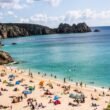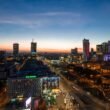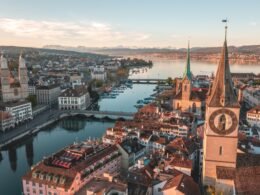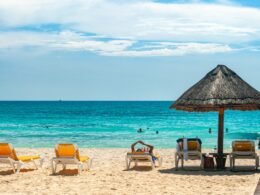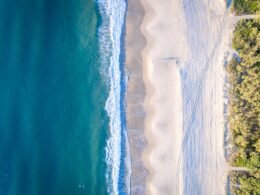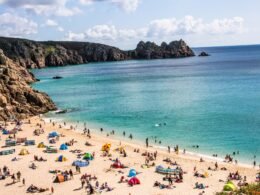As the sixth-biggest country in the world, it can be hard to know how many days to spend in Australia.
With eight states and territories home to vastly different landscapes, activities and experiences, Australia has so much to see and do.
Home to the Great Barrier Reef, Daintree Rainforest, Uluru and Great Ocean Road, you can spend months exploring this wonderful part of the world.
However, this article will cover what you can do and experience in Australia whether you’ve got five, 10, 14 or 21 days to spare.
Best Time to Visit Australia
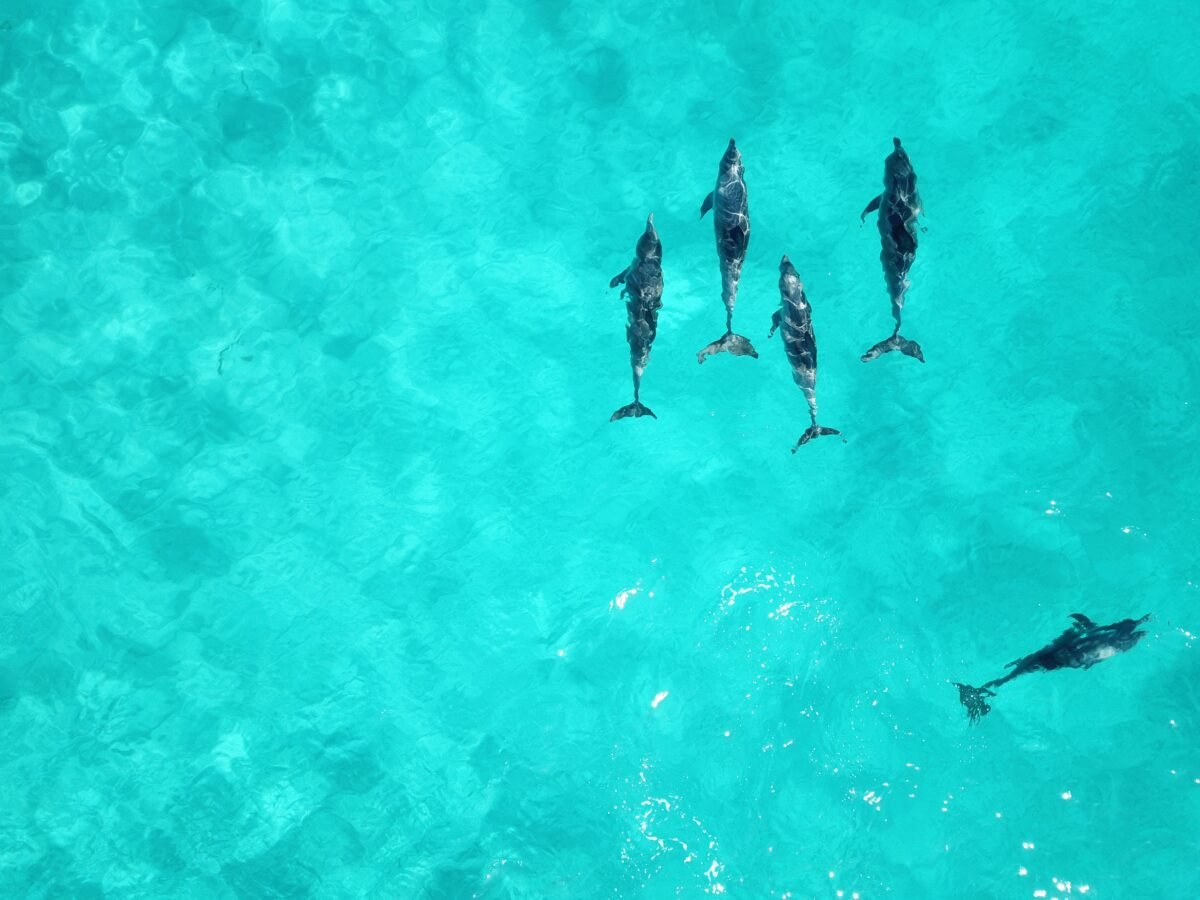
Before you can do any planning for your trip Down Under, you need to know the best time to visit Australia.
Home to tropical, subtropical, desert and temperate climates and a range of seasons, temperatures and climates are important to consider when planning your trip.
The seasons in Australia are as follows
- Summer: December – February (daily temperatures range from 20°C to 37°C).
- Autumn: March to May (daily temperatures range from 17°C to 35°C).
- Winter: June to August (daily temperatures range from 11°C in the south to 30°C in the north).
- Spring: September to November (daily temperatures range from 17°C in the south and 35°C in the north).
However, all four seasons aren’t experienced throughout the country. The northern subtropical and tropical regions experience two seasons only: wet and dry.
The wet season is between October and April. During these months, you’ll experience a mix of rain, storms and sun – making for epic waterfalls. Prices are more affordable during the wet season, too.
The dry season runs from May to September, boasting plenty of sunshine, minimal rainfall and an average maximum temperature of 35°C.
So, when is the best time to visit Australia?
Spring and autumn are the best times to travel the entire country. International flights to Australia are more affordable, the weather is warming up (or cooling down from summer), and the tropical north experiences the dry season, offering perfect travel conditions.
What to Know Before You Go
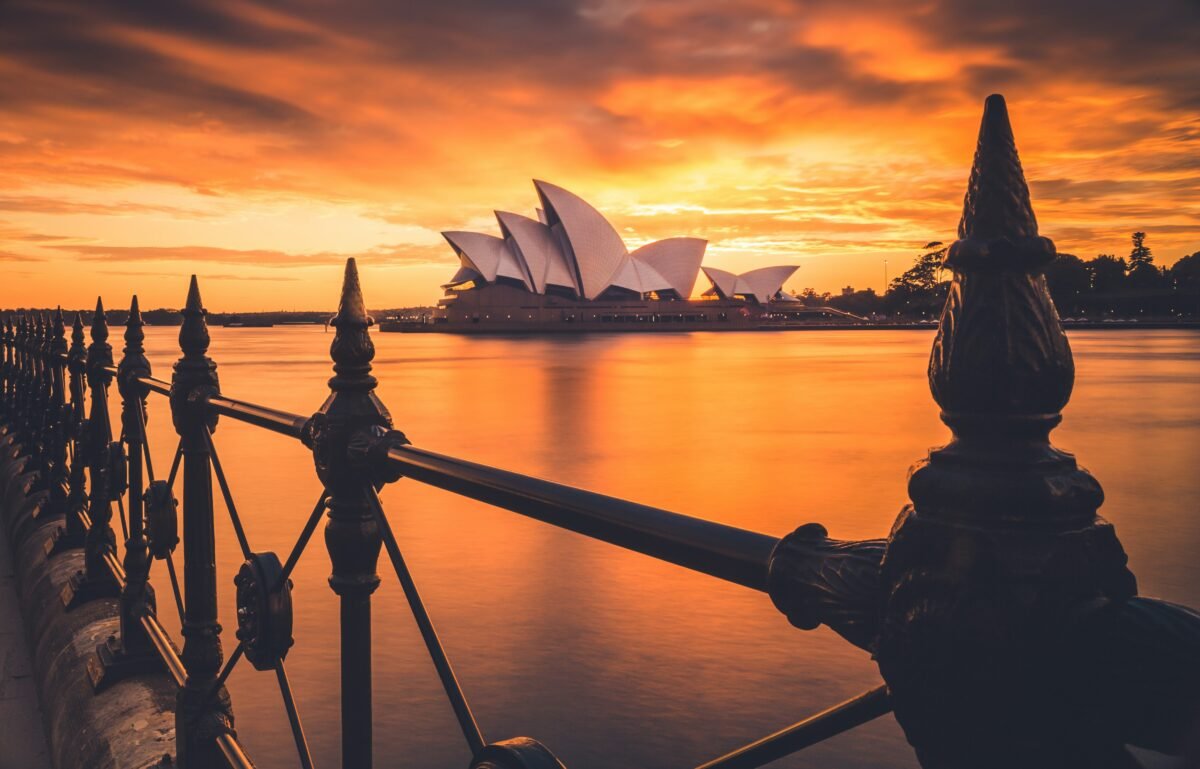
Now that you know the best time to visit Australia, here are a few things to know before you go.
Currency
The currency in Australia is the Australian dollar.
It is a huge country
As mentioned earlier, Australia is the sixth-largest country in the world. So, you won’t see everything unless you plan to spend six months or more exploring the country.
Make sure you budget
Your trip to Australia can be very expensive if you don’t pay attention to your budget. The best thing to do is to keep a budget of $400 (AUD) per day for food, accommodation and activities.
However, this is just a general estimate. Depending on what you want to do and the places you want to visit, it could cost a lot less.
You don’t have to tip
Unlike many other countries in the world, tipping isn’t expected in Australia. However, if you really enjoyed the service you received at a high-end restaurant or hotel, you can leave a tip if you wish to.
The sun is strong
While you may live in a sunny part of the world, the Australian sun is like no other. Due to a hole in the ozone layer over Australia, the sun has a more intense effect on the skin. However, this doesn’t mean you should completely avoid the sun; remember to wear sunscreen whenever you are outside.
Cars drive on the left
If you are planning to drive while in Australia, you must remember to stay on the left side of the road.
Now that you know when to visit and things to remember before your holiday, how many days do you need in Australia?
If You Have a Week or Less

If you’ve only got time to spend one week in Australia, one of the best things to do is to stick to one city. This way, you’ll be able to get a feel for the city’s atmosphere, experience local culture and enjoy some fun activities.
If you do plan on spending a week in one city, another great thing to do is take a day or two to visit the surrounding areas.
For example, if you plan on spending a week in Sydney, take two days to head up to the Hunter Valley region and experience what it has to offer.
While in Sydney, some of the best things to do include
- Swim at Bondi Beach
- Eat lunch with a view at Bondi Icebergs
- Walk from Bondi to Bronte
- Walk across the Harbour Bridge
- Grab a drink at the Opera Bar
- Catch the ferry to Manly
- See the animals at Taronga Zoo
- Day trip to the Blue Mountains
- Drive up to the Hunter Valley region to explore the wineries
Or, if you’re staying in Brisbane, spend a few days on the Sunshine or Gold Coasts to experience beautiful beaches, hinterland hikes and wineries.
Some of the best things to do in Brisbane include
- Kayak along the river
- Watch the sunrise atop Mt Coot-Tha
- Day trip to Moreton Island to snorkel around the shipwrecks
- Visit the different rooftop bars
- Wander through the Queensland Art Gallery and Gallery of Modern Art
If you’ve already ticked off the major cities on previous trips to Australia, why not visit The Outback?
Head to the Red Centre (Northern Territory) and explore the vast landscapes of the Australian desert. Base yourself in Alice Springs and visit the marvel that is Uluru. You could even spend a few days in Darwin and explore Katherine Gorge.
If You’ve Got a Week to 10 Days
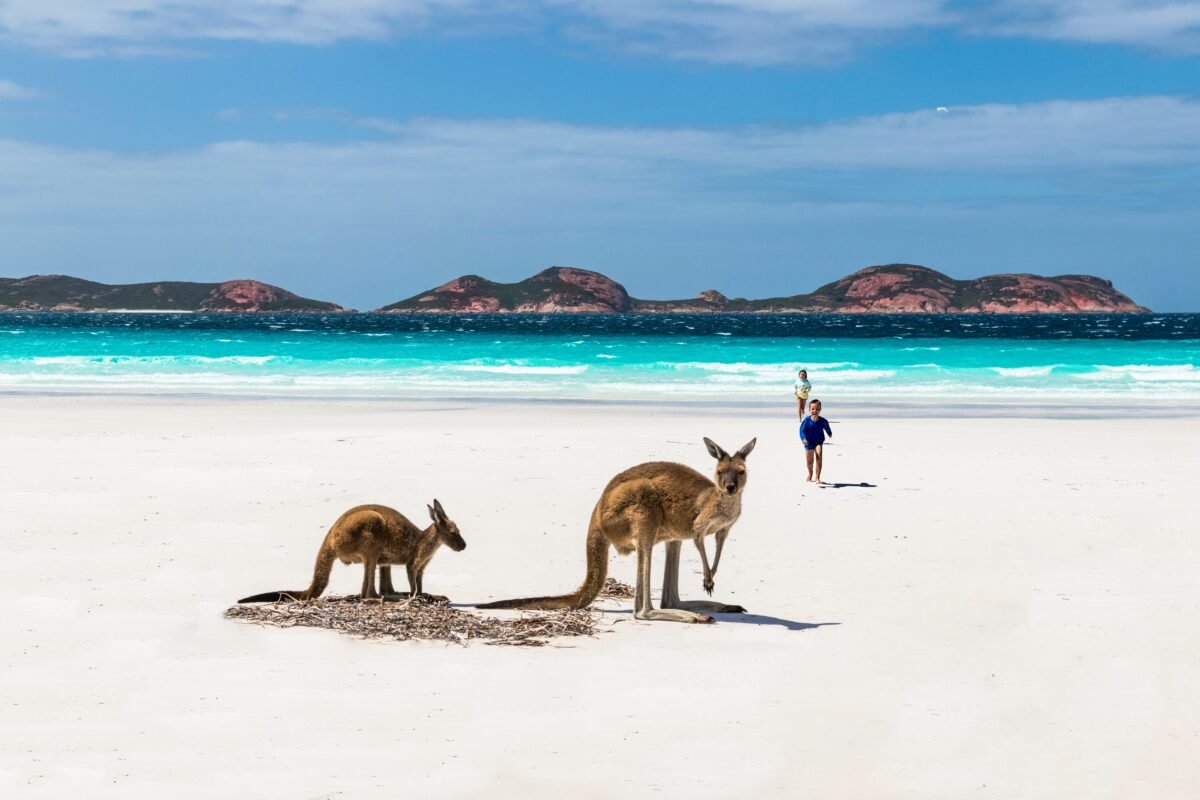
To experience more of what Australia has to offer, six to 10 days is often enough. With this amount of time, the best thing to do is pick a coast to explore – either the east or west.
Many tourists choose to visit the east coast, home to the Great Barrier Reef, Daintree Rainforest, world-class beaches and countless tropical islands.
Made up of Victoria, New South Wales and Queensland, you can choose to visit the major cities of Melbourne, Sydney or Brisbane and explore the surrounding regions.
Ten days is also plenty of time to hire a caravan and head north from Brisbane to experience the beautiful Queensland coast. Some of the best places to see along the way include
- Sunshine Coast
- Hervey Bay/Fraser Island
- Whitsunday Islands
- Townsville/Magnetic Island
- Wallaman Falls
- Cairns/Fitzroy Island/Great Barrier Reef
If you choose to explore the west coast, it’s confined to the biggest state in the country, Western Australia.
The landscapes in WA are vast, and the coastline is more remote. Because it’s such a big state, you can’t explore all of it in ten days, so the best thing to do is choose whether you want to explore the north or south.
Northern Western Australia is home to Ningaloo Reef, Broome and the Kimberley. In the south, you can find the Margaret River wine region, Perth and the beautiful coastal town of Esperance (home to some of the most beautiful beaches in the country).
Some of the best things to do in northern Western Australia include
- Swim with whales on Ningaloo Reef
- Feed dolphins at Monkey Mia
- Ride a camel on Cable Beach in Broome
- Explore the vast region that is the Kimberley
- Spend a day or two at Lake Argyle
- Wander through the gorges and take a dip in the swimming holes in Karijini National Park
Some of the best things to do in southern Western Australia include
- Explore Perth
- Spend a day or two on Rottnest Island
- Taste the wines in Margaret River
- Spend time with the stingrays at Hamelin Bay
- Swim in the most transparent water in Esperance
- Share the beach with Kangaroos at Lucky Bay
If You’ve Got Two-Three Weeks
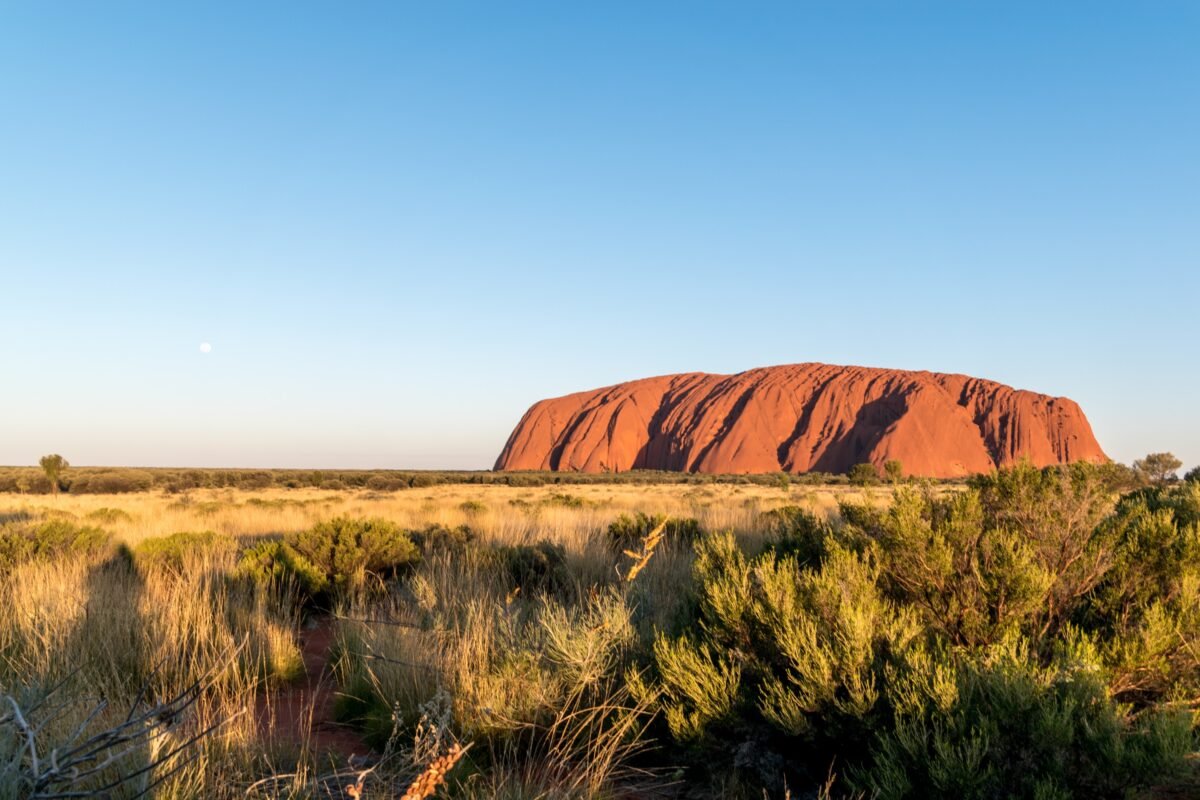
If you’ve got two weeks or more in Australia, you’ll be happy to know you can cover a lot of ground in that time.
During a two-three week trip to Australia, you can explore two, three or four cities and still have plenty of time to experience the natural wonders of the Great Barrier Reef, Uluru, etc.
Depending on the pace of your trip, you can visit a minimum of four and a maximum of 10 different destinations. For a more leisurely trip where you can experience the best of each destination, stick to four places. Or, if you’d rather visit as many places as possible, a faster-paced trip (such as spending one night in each location) is more suitable.
You can see a lot of the highlights in Australia over the course of 14 days. Stops in Brisbane, Airlie Beach, Cairns, Adelaide and Sydney will allow you to explore the cities, beaches and islands.
Three week east coast road trip (or plane) itinerary

Days 1-5: Explore Adelaide and surrounds
Adelaide boasts kangaroos, renowned museums and the beautiful Kangaroo Island.
Spend a couple of days exploring the city and a couple of days on Kangaroo Island, home to a wide variety of native Australian wildlife.
Days 5-9: Explore Sydney and surrounds
Sydney is one of the most popular destinations in Australia, and for a good reason. You can spend a few days exploring the city, seeing the Opera House, walking over the Harbour Bridge and even heading out to Bondi Beach.
The Blue Mountains are a great day trip from Sydney, where you can see the famous Three Sisters and amazing wildlife.
Days 9-13: Explore Brisbane and surrounds
The capital city of Queensland, Brisbane, boasts fantastic weather and a great food and drink scene.
Explore the city for two days, walk along the river, experience a rooftop bar and take a dip at the artificial beach in Southbank.
For a day trip, head to Moreton Island to snorkel around the 15 shipwrecks. For another day trip, either head to the Sunshine Coast or Gold Coast for world-class beaches.
Days 13-17: Airlie Beach and the Whitsundays
Airlie Beach is the gateway to the Whitsundays, one of the most beautiful regions in Queensland.
Spend a day or two exploring Airlie Beach, where you can spend your time on the beach or inland at the waterfalls. Spend another two days on one of the beautiful Whitsunday Islands, such as Hamilton Island or Hayman Island.
Days 17-21: Cairns and the Great Barrier Reef
Finally, spend your remaining time in the tropical north in Cairns. As the gateway to the Great Barrier Reef, spend one day in Cairns, where you can take a day trip to the Great Barrier Reef.
Spend one night on Fitzroy Island, a tropical oasis off the coast of Cairns. Then head up to Port Douglas for two days for ultimate relaxation and fantastic beaches.
Would you rather have an Outback experience? If you’ve seen the Australian coast before, one of the best ways to experience two weeks is to explore the desert.
Two week road trip itinerary from Adelaide to Darwin
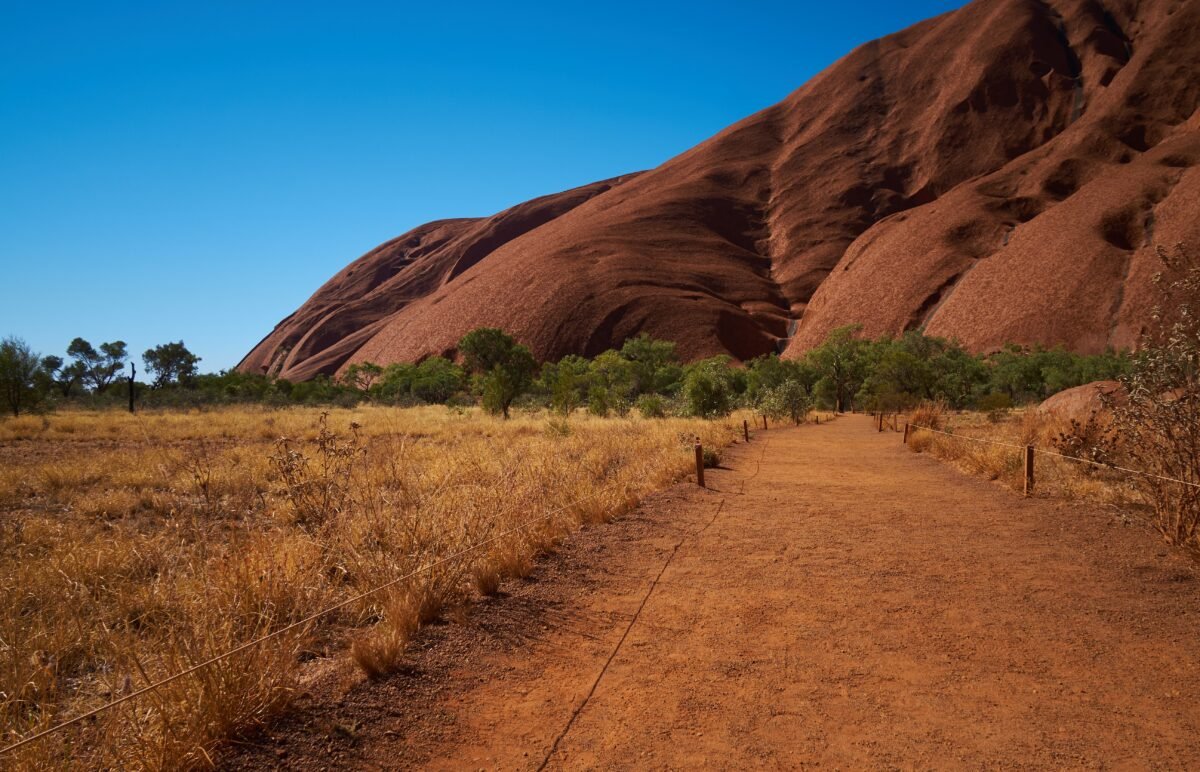
Day 1: Adelaide to Flinders Ranges
Set off as early as possible towards the Flinders Ranges, as it’s a long drive.
Port Augusta should be your first stop, as, after this, you’ve left civilisation.
Renowned for spectacular landscapes, spend a night in the Flinders Ranges, one of the best regions in South Australia.
Day 2: Flinders Ranges to Coober Pedy
Along the way, you’ll see plenty of kangaroos and emus. You can stop at two places, Pimba and Glendambo, but it’s best to stop at just one.
Known as the Opal capital of the world, Coober Pedy is one of the most famous landmarks in Australia, as it’s a mining town in the middle of the Outback. What makes Coober Pedy even more remarkable is that since it’s a mining town, most places are underground, meaning your accommodation will be too!
Day 3: Coober Pedy to Uluru
The drive from Coober Pedy to Uluru is long (755km), so you’ll want to leave nice and early.
Once you arrive at Uluru, you will be blown away by its magnitude. As one of the most famous landmarks in Australia, you can’t visit the Outback without seeing Uluru.
Since there are quite a few things to do around Uluru, spending two days gives you plenty of time to tick everything off.
Day 6: Uluru to Alice Springs
The next town to stop in on your road trip from Adelaide to Darwin is Alice Springs.
Since there isn’t much to do there, the best thing is to stay overnight and head off in the morning.
Day 7: Alice Springs to Banka Banka Cattle Station
You must stop off at the Devil’s Marbles along the way from Alice Springs to Banka Banka Cattle Station. They are giant granite boulders balanced on top of each other and are one of the most iconic landmarks in the Northern Territory.
Once you arrive at Banka Banka Cattle Station, settle in for the night before driving to Katherine in the morning.
Day 8: Banka Banka to Katherine
This journey is another long one; thankfully, there are plenty of places to stop off along the way, such as
- Daly Waters Pub – the oldest pub in the Northern Territory
- Daly Waters Airfield – Australia’s first international airfield
- Mataranka Thermal Pools
Once you arrive in Katherine, there are plenty of things to do nearby, meaning you can spend at least two days exploring.
Some of the best things to do in Katherine and its surroundings include
- Explore Katherine Gorge
- Katherine Outback Experience
- Explore Elsey National Park
- Soak in the Katherine Hot Springs
Day 11: Katherine to Kakadu National Park
Over the next few days, explore the fantastic Kakadu National Park.
There are plenty of things to do, including
- Learn about Australia’s best Aboriginal rock art at Ubirr
- Swim at Motor Cars Falls
- Cruise Yellow Water Billabong
- Take a scenic helicopter flight over the waterfalls
- Soak in the plunge pools at Maguk
Day 13: Kakadu National Park to Litchfield National Park
Finally, your last stop before arriving in Darwin is Litchfield National Park, where you can also spend a few days.
There is so much to do in Litchfield National Park, including
- See Florence Falls
- Lounge around at Buley Rockhole
- Visit Tolmer Falls
- Find The Lost City
Day 15: Litchfield National Park to Darwin
The last leg of your journey from Litchfield National Park to Darwin is only an hour, so you could spend most of your day at the national park and head to the city in the early evening.
Best Places to Visit in Each State/Territory
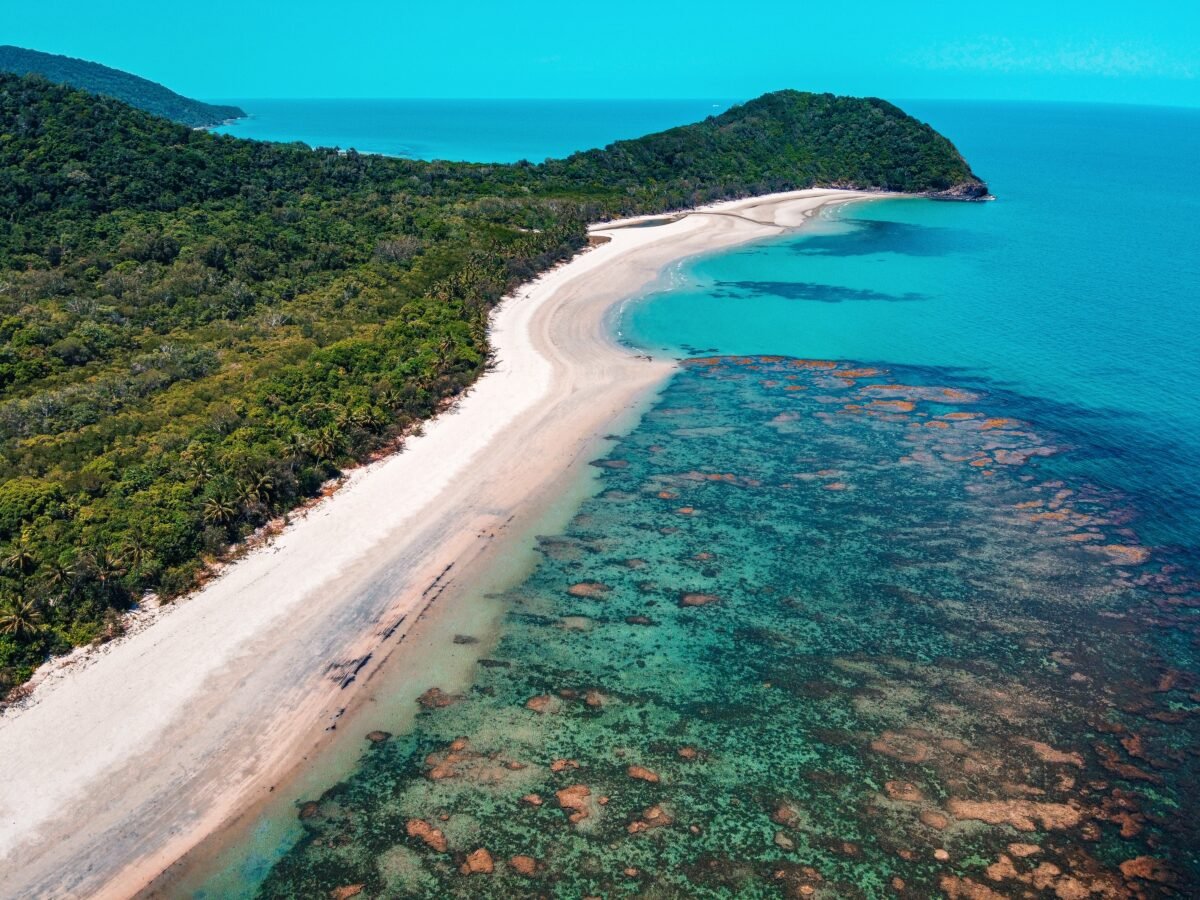
With eight states and territories within Australia, there are so many things to see and do.
If you’re unsure how long you want to spend in Australia, let us make it easy! Below are the best places to see in each state to help you decide what to see and do.
Queensland
- Gold Coast
- Brisbane
- Moreton Island
- North Stradbroke Island
- Sunshine Coast
- Hervey Bay/Fraser Island
- Airlie Beach/Whitsundays
- Bowen
- Townsville/Magnetic Island
- Wallaman Falls
- Cairns/Fitzroy Island
- Great Barrier Reef
- Daintree Rainforest
- Cape Tribulation
New South Wales
- Sydney
- Blue Mountains
- Sapphire Coast
- Hunter Valley
- Newcastle
- Byron Bay
- Lord Howe Island
- Port Stephens
- Jervis Bay
- Snowy Mountains
Victoria
- Melbourne
- Grampians National Park
- Great Ocean Road
- Great Otway National Park
- Phillip Island
- Alpine National Park
- Wilsons Promontory National Park
- Mornington Peninsula
- Dandenong Ranges
- Yarra Valley
Tasmania
- Hobart
- Freycinet National Park
- Bay of Fires
- Cradle Mountain National Park
- Bruny Island
- Port Arthur
- Horseshoe Falls
- Tasman Arch
- West Coast Wilderness Railway
- Table Cape Tulip Farms
South Australia
- Adelaide
- Barossa Valley
- Eyre Peninsula
- Fleurieu Peninsula
- Limestone Coast
- Yorke Peninsula
- Flinders Ranges
- Kangaroo Island
Western Australia
- Perth
- Rottnest Island
- Exmouth
- Monkey Mia
- Broome
- Ningaloo Reef
- The Kimberley
- Lake Argyle
- The Pinnacles
- Karijini National Park
- Esperance
- Margaret River
- Denmark
- Kalbarri
Northern Territory
- Darwin
- Uluru
- Kakadu National Park
- Litchfield National Park
- Mary River National Park
- Simpson Desert
- Katherine Gorge
- Arnhem Land
Australian Capital Territory
- Canberra
- Sapphire Coast
- The Southern Highlands
- National Gallery of Australia
- Gibraltar Falls
In a Nutshell
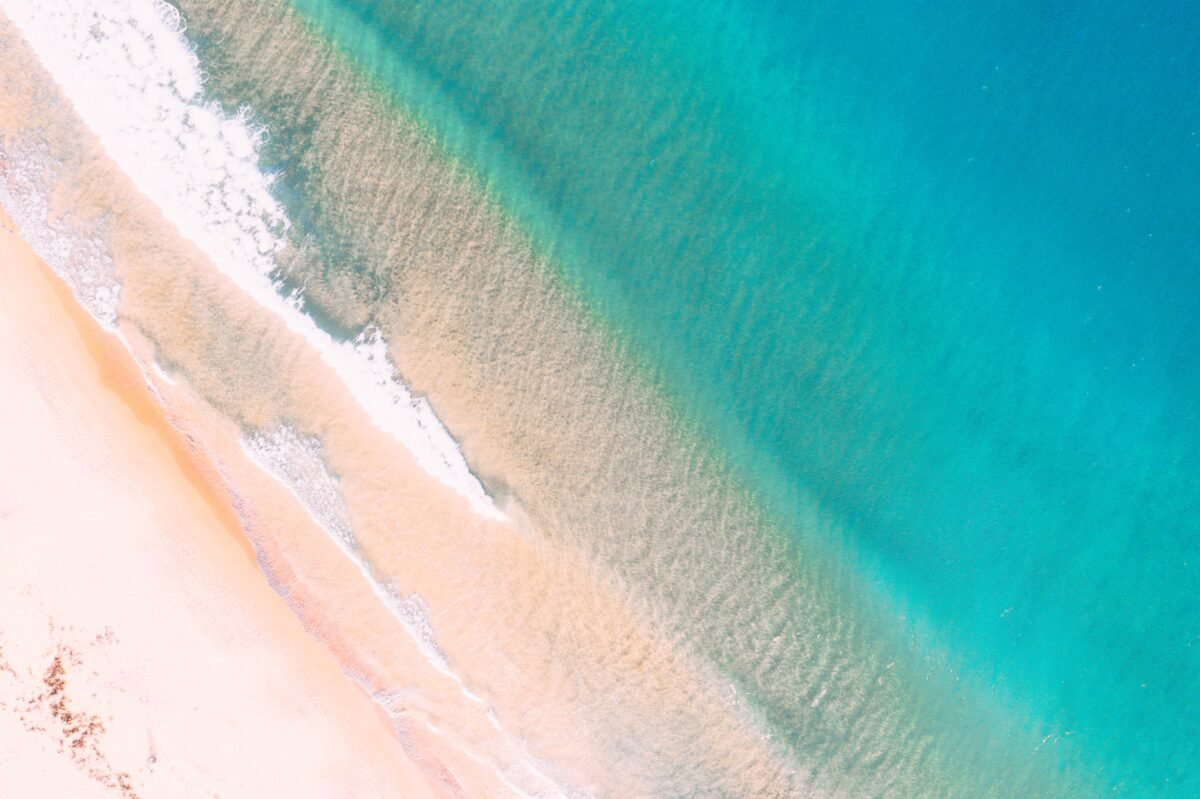
Australia is one of the biggest countries in the world, meaning you won’t see everything on a short one-week trip.
However, depending on how much time you have, you could spend your holiday in one, two or three cities or even explore the east or west coast.
From the Great Barrier Reef to the Daintree Rainforest, Uluru and Great Ocean Road, there is so much to see and do in this country Down Under.
If you’ve only got time for a week in Australia, spending it in one place is the best thing to do.
Are you heading there for two weeks? You could spend it travelling up the Queensland coast or even through the Outback!
If you’ve got enough time to explore the country for two or more weeks, you could spend your time in various destinations, ticking places off your bucket list.
However, no matter how much time you spend in Australia, you’ll always leave wanting more.



